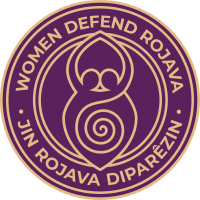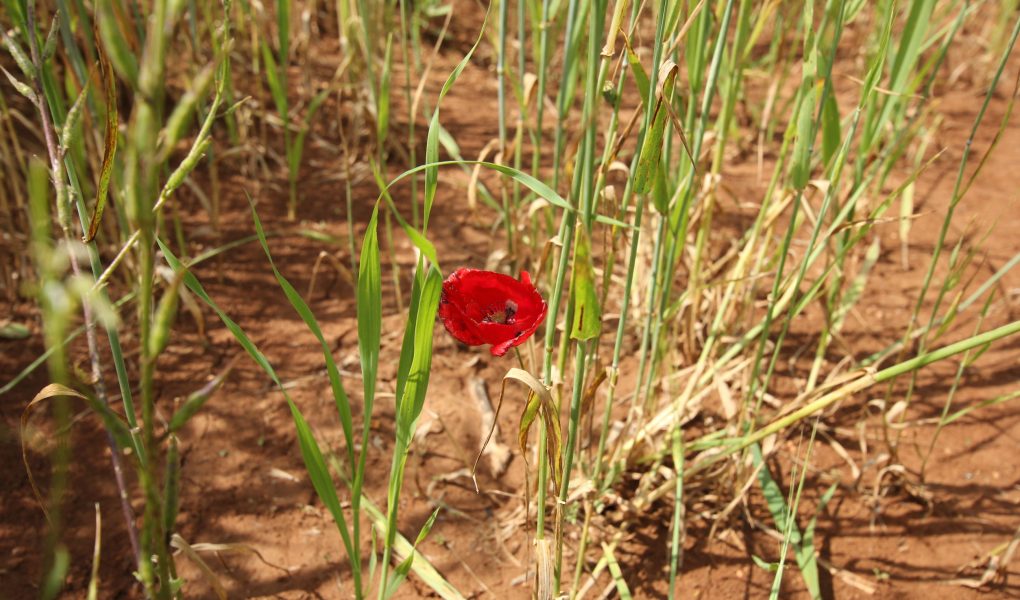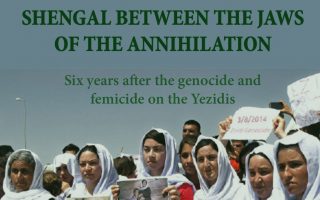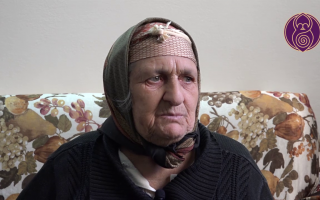The Rojava revolution of North and East Syria is often described as one based on genuine democracy, ecological principles and women’s freedom. It offers an alternative to capitalist modernity and to the nation state. But how is it that all of these principles fit together? Is it just dedication to a mix of different causes, or a determination to dream big, that has brought these principles together in the same place at the same time? Would it be possible to imagine a gender-liberated society that was not also based on ecological principles for example? And why is it so important that women specifically step up to defend Rojava?

It’s crucial that we understand that the gender liberation aspect of the Rojava revolution isn’t just one of a collection of positive values. All the values of the revolution are intrinsically connected, and the oppressions they fight stem from the beginnings of patriarchal oppression. Patriarchy is at the root of the the whole state system, and of the oppression that modern nation states inflict on society. Patriarchal power structures and mentalities have allowed capitalism to develop its huge influence.
This is because patriarchy creates ways of seeing each other and understanding life without which the state and capitalism would not be possible. Starting with the violent division of gender categories and the oppression of women by men, patriarchy developed relationships of dominance and exploitation, and of viewing other people and the world around us as objects we can use or oppress.
So according to the principles of the revolution, based on the philosophy of Abdullah Öcalan, a truly gender-liberated society must be a genuinely democratic one, and we cannot reach that democracy without tackling patriarchal oppression. The ecological crisis the world is now facing comes from our fundamentally exploitative and destructive relationship to nature, which itself is modeled on the exploitation and oppression of patriarchal relations between people.
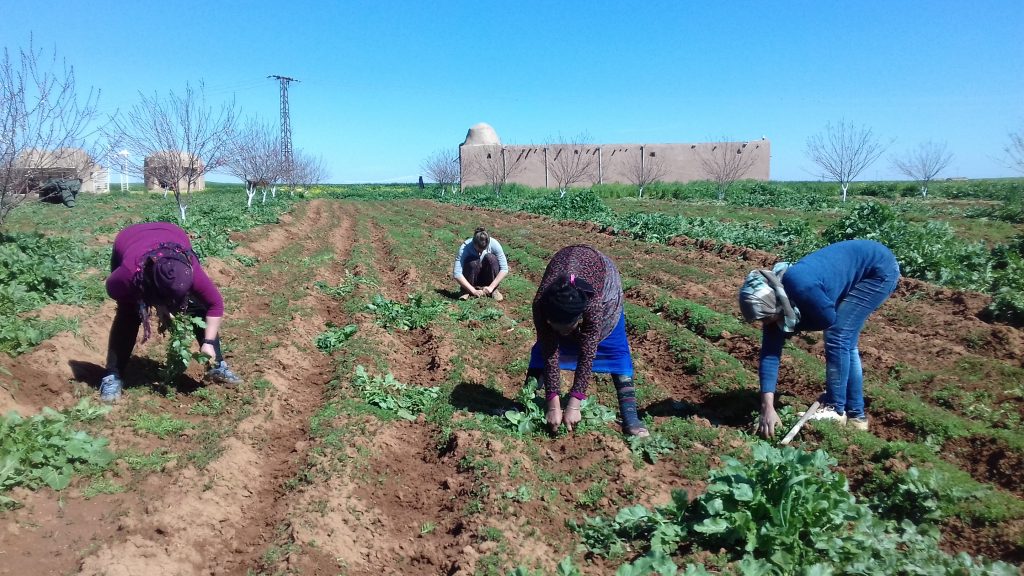
The revolution is indeed determined to dream big, but out of an understanding that if we really want to create change we have no other option. If we consider gender liberation to mean women becoming more successful in the system as it is, or if we see it as disconnected from other issues, we will not really defeat patriarchy. We won’t liberate and democratise society. We cannot separate the ‘women’s issue’ from the revolution as a whole, or let it come later in our priorities, because it is at the base of all struggle.
Whatever they may say, the enemies of the revolution know this very well, as we can see in the consistently targeted gendered violence the Turkish state and its allies have inflicted on the women of North and East Syria. This is no coincidence, and has been a tactic to try to break down resistance, and organisation of society. We can see they also understand the connection between women’s and society’s freedom and ecology, as the same series of attacks have cut off or polluted the water supply or burnt wide areas of land to ash.

The resistance also knows the truth of all this, and builds a perspective of hope from these connections. We understand that if we really and truly challenge patriarchy, we are also developing a more harmonious relationship between all humans, and between humans and nature. We are challenging the state and dominance, and we are challenging the base of capitalism. When we defend Rojava as women, we are defending the core values of the alternative to capitalist modernity.
